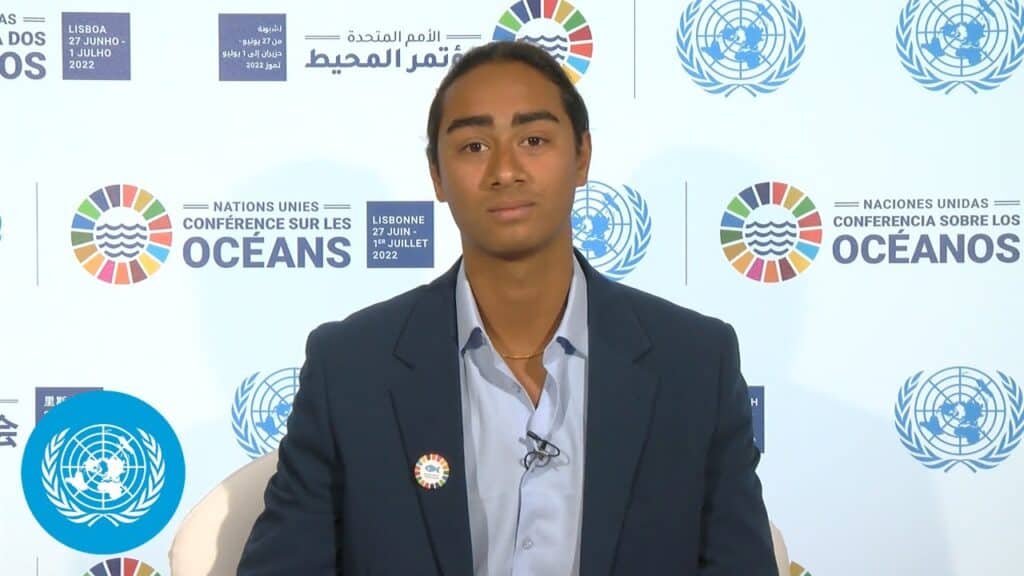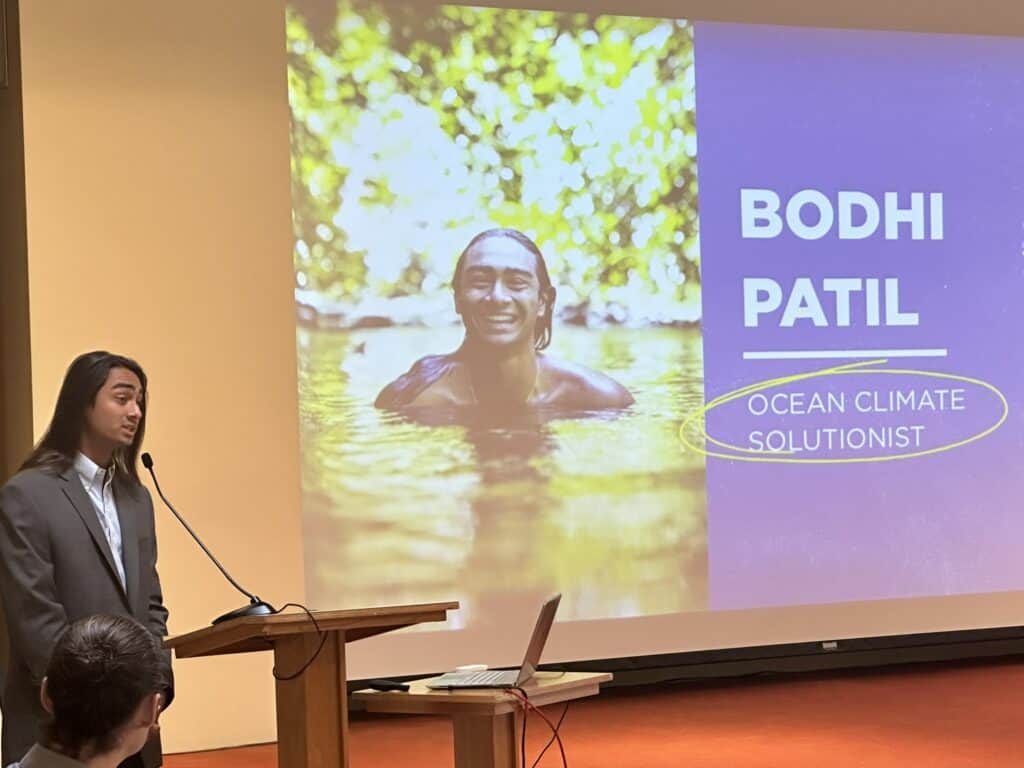From September 8 – 10, Cari-Bois’ first cohort of youth journalists covered The Cropper Foundation and Journal of CESaRE’s 2023 Gen Z Climate Conference. This latest piece published under Cari-Bois’ I WANT TO BE AN ENVIRONMENTAL REPORTER project was written by Colleen Mudie.
Since 2022, Bodhi Patil has been a Young Ocean Leader with the Sustainable Ocean Alliance and director of youth engagement at Sea Dragon Studios – a creative arts and digital media platform which he co-founded.
In addition to those duties, Patil also serves as an Impact Advisor for OnDeck Fisheries AI and a Youth Advisor for World Oceans Day.
With Patil managing several different roles at once, it is no surprise that he has experienced some level of stress throughout his duties.
So, on September 10, he shared stress management tips for environmental activists during the final day of the Cropper Foundation and Journal of CESaRE’s Gen Z Climate Conference.

Stress isn’t a standardised experience which means that different people experience stress in different ways.
When Patil is stressed, he feels uneasy, tightness in his body and a lack of security in the work he is doing.
Over the years, he has made a conscious effort to accept that stress is part of life and the work he does.
By accepting the reality, Patil said it was a first step in reducing the guilt he felt when he was less productive while being stressed.
Patil’s focus then turned to discovering stress coping strategies but didn’t have to look too far away from home.

Patil’s mother is a life coach and she taught him meditation techniques like deep breathing and grounding which are activities meant to realign one’s energies by connecting with the earth.
Bodhi firmly believes that before one can identify themselves as part of the environment or the world at large, the entire idea has to be resilience within oneself which can then be extended to society.
To achieve resilience within oneself, self-care must be practised.
If self-care is ignored, Patil said it can be one reason why some activists may not find their work being as effective because one must be at their best to give their best.
For Patil, there’s a strong correlation between the ability of taking care of yourself and self caring for the planet.

Starting from today, Patil wants environmentalists to think more about how they feel and listen to what their bodies are telling them in stressful moments.
By taking preventative actions, Patil said anyone who has “red energy” (negative energy) can use the concept of a “blue mind.”
Blue mind is the idea of being around any source of water – whether it’s in your bathroom or virtually – as this increases the ability for the human mind to be calm and centred.
Given oceans already help us breathe by providing half of the earth’s oxygen through its different life forms and processes, it can literally and metaphorically help us “take a breath” when we need one in the midst of life’s stresses.





